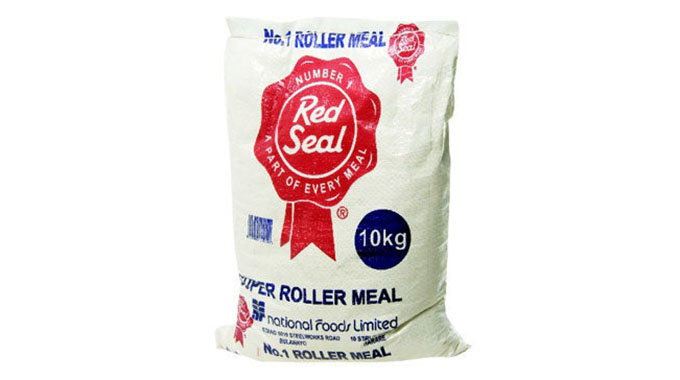Source: Millers to brand subsidised roller meal | The Herald

Bulawayo Bureau
Small and Medium Millers’ Association of Zimbabwe (SMMAZ) has embarked on a pilot project to brand their maize meal packaging material with a standard Government subsidy stamp.
At present there are concerns that subsidised maize meal is being diverted onto the parallel market by cartels for arbitrage opportunities, while the formal market suffered limited stock.
A document addressed to the Ministry of Industry and Commerce dated April 20, 2020 and copied to the Ministries of Justice, Legal and Parliamentary Affairs, and Home Affairs and Cultural Heritage, SMMAZ interim chairman Mr Davis Muhambi said:
“SMMAZ is glad to announce that it will be embarking on a campaign whose main objective among others, is to ensure that subsidy roller meal reaches the intended consumer and is not diverted onto the black market.
“As a first step in implementing this campaign, SMMAZ has adopted a standard Government subsidy stamp design which it has implemented on the packaging of member millers as a pilot project.”
Mr Muhambi said the motivation behind the aforesaid initiative is to ensure that subsidised maize meal reaches its intended beneficiaries through proper retail shops and at the recommended price.
He noted that presently, it is almost impossible for anyone to identify or distinguish between subsidised and non-subsidised maize meal.
“This has fuelled the channelling of subsidy maize meal to the black market–and dealers are now profiteering at the expense of citizens.” Once it is easy to identify by way of the subsidy stamp, citizens can demand to purchase maize meal at the regulated price,” said Mr Muhambi.
Law enforcement and task-forces will also be able to easily identify subsidy maize meal being sold on the black market and to take the necessary measures at that point, he said.
In coming up with the concept, Mr Muhambi said SMMAZ, is further motivated by its members’ social responsibility and loyalty to their clients to try by all means to alleviate the plight of the ordinary citizen who cannot afford the exorbitant prices obtaining on the black market.
In Bulawayo, for instance, a 10 kilogramme of subsidised roller meal was pegged at between $120 and $180 on the parallel market against $70 in the formal market.
In the letter to Government, the small and medium millers’ association appealed for support to their initiative by drafting and enacting legislation that makes it mandatory for millers participating in the programme to incorporate the stamp on all their packaging.
So far, two milling companies within the small and medium milling sector have implemented the pilot project.
Millers in the sector have also appealed for Government support by outlawing the sale of subsidised maize meal on the black market as well as criminalising the re-bagging of subsidy roller meal into plain, unbranded or unstamped packaging and or erasing the subsidy stamp.
In their submission, SMMAZ have also appealed to the Government for the proposed legislation to be supported by punitive fines of at least three times the subsidy consumer price per 10kg which translates to $210, harsh jail sentences or both, as a deterrent to would-be black-market retailers or accomplices.
The millers have proposed the need for Government support through embarking on an awareness campaign targeting the general public in order to make known the existence of the stamp and its features.
“It should also encourage the public to play an active role in the fight against the black market by refusing to pay prices other than the recommended price, reporting such activity to the police and or calling the numbers provided on the subsidy stamp.”
It is hoped that the awareness campaign should be centred around creating a strong sense of ownership of the subsidy roller meal by the general public, and that they should not allow anyone to take it from them nor abuse them for it.
Recently, the small-to- medium scale millers appealed to Government to increase the monthly grain allocations to enable them to improve supply of maize meal onto the formal market.
Zimbabwe requires about 1,8 million tonnes per year and due to poor harvest last cropping season, Government is importing to cover the deficit.
Individuals and corporates were now allowed to import the grain using their own free funds.
Due to the scarcity of subsidised maize meal onto the formal market, consumers were scrambling for the limited commodity each time it gets delivered in retail outlets.
Meanwhile, the National Peace and Reconciliation Commission (NPRC) has said access to subsidised maize meal has become a source of conflict that needs to be diffused before it gets out of hand during the lockdown period.
Many people are spending long hours queuing for maize meal and sometimes they do not get it.
The queues have resulted in members of the public failing to observe social distancing and lockdown regulations, a critical component of flattening the Covid-19 curve.
It has also been reported that the shortage of maize meal has led to mini-cartels who control the distribution and selling of the cheaper maize meal.
COMMENTS